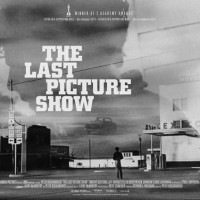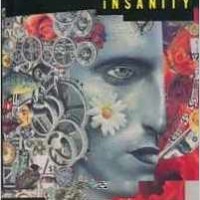Peter Gelb says New York's Metropolitan Opera will go broke within the next few years without wage cuts. The BBC reports: He proposed cutting 16% of its $200m (£119m) labour costs by changing work rules for the orchestra and chorus. Gelb also defended spending $169,000 (£100,000) on a poppy field stage set for the opera Prince Igor. Unions have already threatened strike action over the proposed pay cuts, which are up for debate before the players' current contracts expire at the end of July. "What's at stake, ultimately, is the future … [Read more...]
Film tax credits, jobs, and lost incomes
This morning artsjournal.com links to yet another chapter in the endless series of different states, provinces and countries deciding how much in tax credits ought to be granted to commercial film and television production, because: jobs. I recently posted re Maryland here. Today, Hollywood Reporter, er, reports: the California Film and Television Job Retention and Promotion Act of 2014 was approved by the state assembly Wednesday by a unanimous vote of 71-0. The legislation, authored by Assemblymen Mike Gatto (D-Los Angeles) and Raul … [Read more...]
L3C’s in the arts (updated with citation info)
I have a new working paper up on L3C's in the arts, which you can download for free here. If you were there, it's the paper I presented at Social Theory, Politics and the Arts in Seattle last October, cleaned up and revised. The abstract: Traditionally, the choice of organizational form facing an arts entrepreneur has been between starting a commercial enterprise or a nonprofit. Recently, state governments across the United States have passed authorizing legislation for various forms of hybrid organizations that combine elements of the … [Read more...]
Why tax breaks for commercial theatre?
The Stage reports (and I repost the story in full here): Tax breaks for the theatre industry to be introduced this autumn could bring in £100 million for commercial theatre and £20 million for touring productions in coming years, Arts Council England’s chair PeterBazalgette has said. He said the initiative was a “highly significant move” from the government, whose film tax credit scheme has far exceeded original estimations that it would bring in £60 million investment a year, with the figure estimated to be worth £260 million annually. … [Read more...]
What to do about no-shows
What is the best policy for an organization to follow regarding people who make reservations but then never show up? I was reading about this in the context of restaurants, some of which, as a result of the costliness of broken reservations (which result in empty tables that could have been filled by latecomers), have simply ended the practice of taking reservations at all. Tom Sietsema, in the Washington Post, is not amused: Eager to explore the Thai fireworks at Little Serow in Dupont Circle at prime time? Prepare to wait up to three … [Read more...]
Art and money
A.O. Scott, in his Times article "The Paradox of Art as Work," begins: There are few modern relationships as fraught as the one between art and money. Are they mortal enemies, secret lovers or perfect soul mates? Is the bond between them a source of pride or shame, a marriage of convenience or something tawdrier? He will go on to say some interesting things about how the economy of the arts in changing, but with that paragraph - and for that matter, the title of the piece (which he didn't necessarily choose) - I think he really starts off on … [Read more...]
Does theatre make you happy?
The Stage reports: "Study finds attending plays feels as good as a pay rise". The study was carried out at the LSE, funded by the UK Department for Culture Media & Sport. The research paper itself is an excellent piece, well-placed in the current scholarly literature on determinants of (self-reported) well-being, clearly presented, and always careful to note the limitations on what we can draw from its findings. I think where we most need to be careful is in how we interpret the research. The Stage writes: People who attend plays … [Read more...]
We switched ’round and ’round ’til half-past dawn
A new report from the Nielson company: According to Nielsen’s forthcoming Advertising & Audiences Report, the average U.S. TV home now receives 189 TV channels—a record high and significant jump since 2008, when the average home received 129 channels. Despite this increase, however, consumers have consistently tuned in to an average of just 17 channels. This data is significant in that it substantiates the notion that more content does not necessarily equate to more channel consumption. And that means quality is imperative—for both … [Read more...]
Gary Becker, the economic way of thinking, and the arts (updated)
University of Chicago economist, and Nobel Laureate, Gary Becker, has died at the age of 83. A brief summary of his work is here, and a more complete picture given by his Nobel address, here. He is one of the most influential economists of the contemporary era. His innovations stemmed from the idea that the basic methods of traditional economics - the study of how individuals and firms make choices given the constraints and prices they face - could be applied to many, many aspects of human life: choices about investments in education and … [Read more...]
But I know what I like
At Guardian Books, Will Self, for a forthcoming lecture, writes: I believe the serious novel will continue to be written and read, but it will be an art form on a par with easel painting or classical music: confined to a defined social and demographic group, requiring a degree of subsidy, a subject for historical scholarship rather than public discourse. He fails to convince me, but mine might be a minority view. However, I will pick up on one point. He writes: This is not to say that everyone walked the streets [in the twentieth century] … [Read more...]










